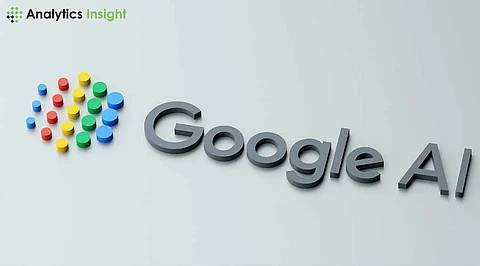

AI services from Google are helping determine the future across industries, powered by state-of-the-art solutions through Machine learning, NLP and cloud solutions. Google is now using AI in finance and even in the healthcare, retail trade and many other businesses offering smarter tools and streamlined processes.
1. Fraud Detection in Finance
Google AI also plays a crucial role in the financial sector as it helps in the enhanced detection of frauds. Machine Learning models developed by Google, help the banks and other financial institutions to conduct real-time monitoring of the transactions and to detect the right activities clearly accused of frauds. Cloud AI Financial Services Solutions provide risk analysis and monitoring, compliance and customer services assistance tools.
2. FMCG and Customer Experience
In this case, Google has integrated AI services across the retail business various aspects such as customer experience and inventories. Through Google Cloud’s AI tools, retailers use machine learning to predict customer preferences, automate chatbots for customer support, and improve inventory tracking with demand forecasting models. Another benefit of using Google Vision API is that it makes an individual sort product images and organise catalogs proficiently.
3. Techniques of Natural Language Processing in Business
Generating highly developed voice assistants and chatbots, Google’s NLP tools like Natural Language API help businesses to analyse the words and respond to the customers. They have transformed customer service to a certain extent as a service organisation can now respond to the customer queries in an instant manner while at the same time cutting down on the cost of human attendance to the requests of the customers.
4. Content Creation and Translation
The creators of content find great uses of Google’s Bard and AutoML, which create SEO-friendly articles and blog entries out of raw data. Google Translate, powered by machine learning, provides real-time translation of over 100 languages, making it a go-to solution for global businesses and cross-border communications.
5. Automation in Manufacturing
Google AI has invested in robotics for manufacturing and smart predictive maintenance techniques in the sector. By analysing data from machines and processes, manufacturers can predict equipment failures before they occur, thus reducing downtime. Regarding quality control, Google’s Vision AI can also help to detect defects in the products during the manufacturing process so that manufacturers can focus on improving product reliability.
6. Marketing and Ad Optimisation
Google’s Ads AI strongly supports businesses by offering the latest insights regarding advertising to make appropriate decisions. It uses artificial intelligence to determine the customer’s behavior, ad space and overall impact of the campaign. This tool enables companies to decipher consumers patterns and market messages most effective for the betterment of the company’s return on investment.
7. Environmental Conservation and Climate Change
AI’s role in environmental conservation has been expanding, with Google’s AI-powered Earth Engine leading the way. It allows the researchers to study deforestation, report on carbon outputs, and simulate climate change effects. Also, Google’s AI Weather Forecasting tool to predict natural disasters saves on losses due to catastrophes and prepare a community effectively.
8. Healthcare Diagnostics and Precision Medicine
In healthcare, diagnostic applications have shown the most advanced development through Google AI. This has been confirmed by DeepMind, Google’s AI research lab, after it utilised algorithms that were able to diagnose the eye diseases at the same level as would a doctor. AI technologies help Google diagnose cancer, and increase the patients’ survival rate by processing the information about patients to suggest the most suitable treatment. The cloud-based service, called the Healthcare API, overcomes data interoperability challenges at hospitals to enhance the way they handle patient records.
9. Learning
Google AI enhances learning for students, teachers as well as skills development to foster education through application such as Google Classroom. These services enable educators to monitor students’ progress, pinpoint a number of weaknesses students tend to have, and suggest learning routes.
10. Traffic Management
Cities are turning smarter with Google AI technologies. By applying intelligent traffic controls, Cities may prognosticate traffic congestions, change the time taken between green and red lights, and decrease the number of car crashes. Also, by utilising the AI, Google Maps is offering the shortest routes helping drivers save time and fuel, thus reducing urban pollution.
With the help of AI services, Google is altering the belt of industries by ways of optimising it, improving customers’ satisfaction, besides spurring innovation. As we have seen in different sectors, possibilities for AI to change the ways we live and work are limitless. Hence, Google continues to lead the change by leveraging AI as a utility, offering it to companies, organisations and society as accessible, scalable solution with greatest potential for expansion and reinvention for the benefit of diverse business types and entire communities.
